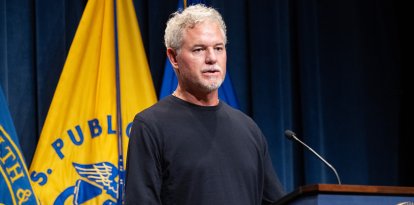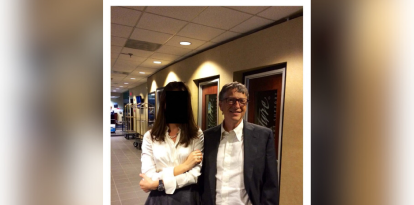44% of millennials think refusing to use 'preferred pronouns' should be a crime
Although the majority of Americans have spoken out against it, there is legislative history of bills and rules that mandate referring to a person based on their preference.

(Unsplash)
He, him or she, her. They, them, theirs or ze, hir, hir or per, pers... These are some of the options in the constellation of so called Personal Gender Pronouns (PGP). Not using them - by mistake or intentionally - could carry jail time in a not-too-distant United States: 44% of millennials think that refusing to use 'preferred pronouns' should be a criminal offense.
Instead, 31% disagree, according to a recent Redfield & Wilton Strategies poll carried out for Newsweek. The remaining voters aged between 25 and 35 years old responded with not knowing or neither agreeing nor disagreeing.
Interestingly, members of the succeeding generation overwhelmingly opined against making it illegal to call someone by a pronoun other than the one they prefer. Forty-four percent of Generation Z disagreed. Thirty-eight percent agreed, compared to 26% who said they did not know or did not express their opinion.
The gap widens as the lens opens to consider Americans in general. Some 65% of voters are opposed, while 19% are in favor. Meanwhile, 12% neither agreed nor disagreed and 4% did not know.
To use or not to use, that is the question
In addition to having a voter base, the penalty for refusal to use 'preferred pronouns' also has a legislative history.
In California, Shake Shack had to pay $20,000 to a former employee who protested because his coworkers called him by a pronoun other than the one he preferred. Earlier this month, a bill passed by the Democratic-controlled Michigan House of Representatives would penalize anyone who fails to use 'preferred pronouns' with up to five years in prison.
Schools are one of the scenarios where the debate has raged the most. From dismissed teachers who refused to use the pronouns demanded by their students -and not only in the United States- to guides for teachers explaining "misgendering" and prompting students to "introduce our names and pronouns to new people" and "correct misgendering that we witness."
Another educational field permeated by the use -or not- of 'preferred pronouns' is television. As previously reported by Voz Media, there are numerous cases of series and movies for children where they impart the use of pronouns to be used.

























